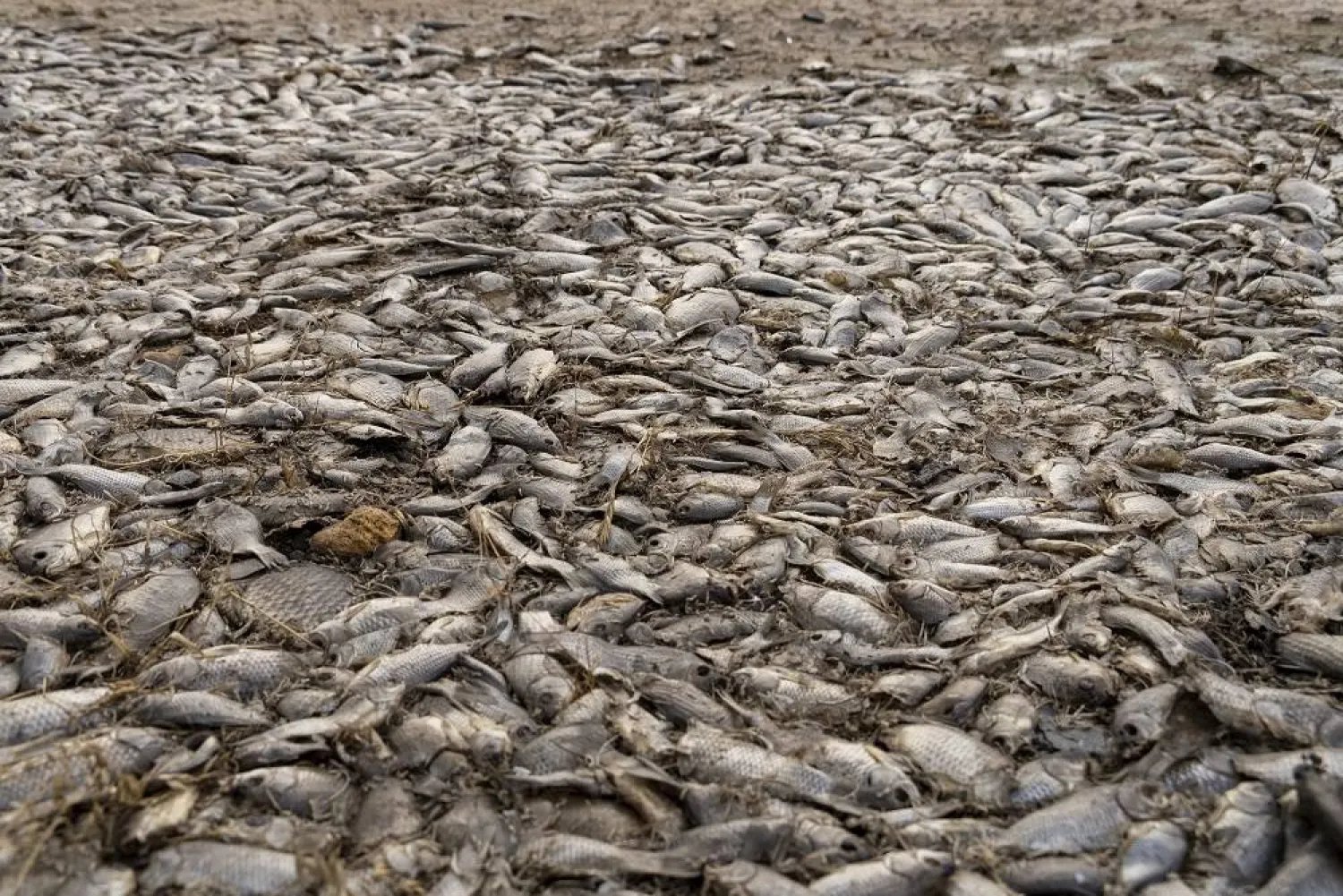The Kremlin's spokesman said Monday that UN aid workers who want to visit areas ravaged by the recent Kakhovka dam collapse in southern Ukraine can’t go there because fighting in the war makes it unsafe.
The United Nations rebuked Moscow on Sunday for allegedly denying aid workers access to Russia-occupied areas where residents are stranded amid “devastating destruction.”
The UN humanitarian coordinator for Ukraine, Denise Brown, said in a statement that her staff were engaging with both Kyiv and Moscow, which control different parts of the area, in a bid to reach civilians in need. They face a shortage of drinking water and food and a lack of power.
Brown urged Russian authorities “to act in accordance with their obligations under international humanitarian law” and let them in.
Kremlin spokesman Dmitry Peskov didn’t explicitly admit that Russia had blocked UN access, but told a conference call with reporters that Ukrainian attacks made a visit too risky.
“There has been constant shelling, constant provocations, civilian facilities and the civilian population have come under fire, people have died, so it’s really difficult to ensure their security,” Peskov said.
His comments came amid varying accounts by survivors of the quality of assistance that Russia is providing in areas it controls. The dam lies on the Dnieper River, which forms the front line between Russian and Ukrainian forces on the eastern and western banks, respectively.
Many evacuees and residents accuse Russian authorities of doing little or nothing to help. Some civilians said that evacuees were sometimes forced to present Russian passports if they wanted to leave.
On the Ukrainian side, rescuers are braving Russian snipers as they rush to ferry Ukrainians out of Russia-occupied flood zones.
Ukraine's presidential office said Monday that the Kherson region affected by the flooding endured 35 Russian attacks over the previous 24 hours.
Exclusive drone photos and information obtained by The Associated Press indicate that Moscow had the means, motive and opportunity to blow up the dam, which was under Russian control, earlier this month.
The explosion occurred as Ukraine mustered for a counteroffensive. Kyiv's forces have intensified attacks along the 1,000-kilometer (600-mile) front line recently.
Some analysts saw the dam breach as a Russian effort to thwart Ukraine's counteroffensive in the Kherson region.
The UK Defense Ministry said Monday that Russia has recently redeployed several thousand troops from the banks of the Dnieper to buttress its positions in the Zaporizhzhia and Bakhmut sectors, which reportedly have seen heavy fighting.
The move “likely reflects Russia’s perception that a major Ukrainian attack across the Dnieper is now less likely” following the dam’s collapse, the ministry said in a tweet.
Ukrainian forces have advanced up to seven kilometers (four miles) into territory previously held by Russia, she said. Russia’s Defense Ministry didn’t confirm losing any ground to the Ukrainian forces.
It wasn't possible to independently verify battlefield claims by either side.
Russia is also pursuing offensive actions, according to Ukrainian Deputy Defense Minister Hanna Maliar.
Russia has concentrated a significant number of its military units, and particularly airborne assault troops, in Ukraine’s east, she said. They are stepping up Moscow’s offensive around Kupiansk in Ukraine’s northeastern Kharkiv province and Lyman in the eastern Donetsk province, Maliar said on Telegram.
Ukrainian forces may have put their counteroffensive operations on hold as they review their tactics, according to the Institute for the Study of War, a Washington-based think tank.
It noted that Kyiv “has not yet committed the majority of its available forces to counteroffensive operations and has not yet launched its main effort.”
Russia attacked south and southeast Ukraine overnight with cruise missiles and self-exploding drones, Ukraine’s air force reported Monday. Four Kalibr missiles and four Iranian-made Shahed drones were shot down, it said.
According to regional officials, the southern province of Odesa and the southeastern Dnipropetrovsk region were targeted by the attack. No casualties or damage were immediately reported.









